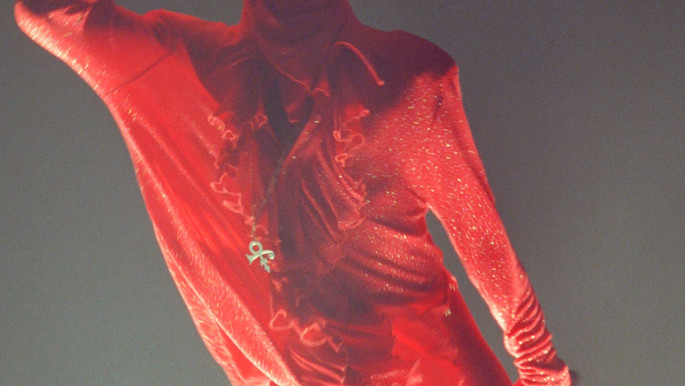Prince loved to provoke, and Islam was one way
Seeking solace from the glitz and glamour of godless America, the King of Pop found a new spiritual calling in the UAE. Or so the story goes.
This of course, explained the pictures showing the pop star alongside Emirati royals, and his fondness for wearing niqabs to disguise his appearance in public.
The Times of India alleged that he had changed his first name to Mikaeel - the Arabic of Michael. Muslims were left disappointed by the late icon's silence on the matter, however interviews with Arab journalists were peppered with the occasional "inshallah" - or "God willing".
Yesterday, Prince Rogers Nelson - better known, simply as Prince - died aged 57. It was the loss of another huge icon from an age before the internet, Pop Idol, and when pop turned bland.
It is in death, many of his fans have gone through his many interviews to find out the Emperor of Pop's views on Islam.
Although Prince was openly aligned to the Jehovah's Witnesses, he also help sympathies for Islam.
"It's fun being in Islamic countries, to know there's only one religion," Prince told the Guardian in 2011.
"There's order. You wear a burqa. There's no choice," he continued. "People are happy with that."
![A YouTube video detailing Michael Jackson's alleged conversion to Islam [YouTube screenshot] A YouTube video detailing Michael Jackson's alleged conversion to Islam [YouTube screenshot]](https://www.newarab.com/sites/default/files/styles/medium_16_9/public/media/images/293C82B8-80ED-402A-BAEA-68FF69BC2B8D.png?h=774096fd&itok=-LAMm4Fs) |
|
| A YouTube video welcoming 'Brother Mikaeel' to Islam [YouTube screenshot] |
Flamboyantly conservative
Prince was raised a Seventh Day Adventist before becoming a Jehovah's Witnesses in 2001.
According to some reports, the Purple Rain singer even took to doing the weekly rounds in the neighbourhood, knocking on doors and preaching the word of God.
"A newspaper in his hometown reported how a married couple had answered their door to find Prince offering a copy of the Watchtower [Jehovah's Witnesses' magazine]," the Guardian wrote in 2004.
Such was his level of commitment to the cause that he even abstained from voting in the 2009 US elections when Barack Obama became president.
"The reason why is that I'm one of the Jehovah's Witnesses," Prince said at the time. "And we've never voted. That's not to say I don't think... President Obama is a very smart individual and he seems like he means well. Prophecy is what we all have to go by now."
It is against this commitment to a conservative religious order that the musician's admiration for the plain dress he encountered in the Arab Emirates can be better understood.
Despite this, Dorian Lynskey, the Guardian journalist who conducted the interview, seemed taken aback by the comments on women's face veils, as is common among Emirati women.
However when he pressed the star about the possibility that some are pressured or coerced into wearing the veil, the singer responded:
"There are people who are unhappy with everything . . . There's a dark side to everything."
 |
|
| Prince's outfits challenged common notions about masculinity [AFP] |
A born rebel
In a world where popular Western depictions of Muslims and Arabs are often as unrefined and backwards caricatures. In this respect Prince's views can be viewed as liberal and progressive.
However, Prince was probably more being a rebel. In idealising the East, he was defying notions about Arabs and Muslims widely-held in the United States.
Although conservative, Prince constantly transgressed boundaries and challenged commonly-held notions about sexual issues too.
Prince protested against the views of Americans during this time about sexuality and masculinity. He donned an effeminate look, which led many to question his sexuality.
"I saw a black bra thrown on the stage at the second Sydney show, but P [Prince] didn't see it," wrote one admirer on an unofficial Prince forum.
Somewhere amid this and more devotional songs later in his career such as "The Cross" and "God", there was a certainty that gave no reverence to what others thought.
Many will want to remember Prince's legacy this weekend and party like its 1999, but we will now enter an era deprived of musical genius from the likes of Michael Jackson, David Bowie, and now His Purpleness himself.





 Follow the Middle East's top stories in English at The New Arab on Google News
Follow the Middle East's top stories in English at The New Arab on Google News


